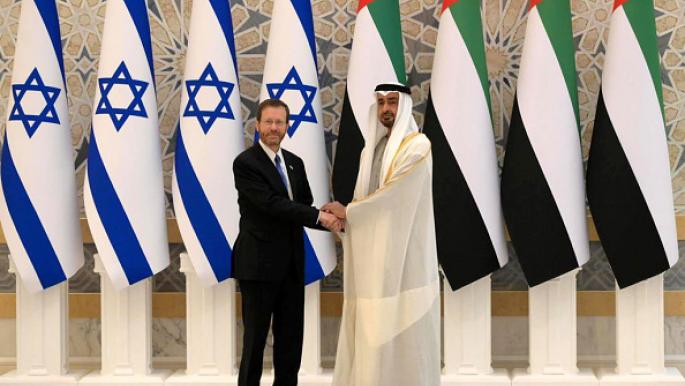According to emiratesleaks.com, diplomatic sources revealed an offer made by the UAE, an Arab country, to South Africa, which includes huge investments to withdraw from suing Israel in the International Court of Justice.
Emirates Leaks sources reveal UAE officials sought to persuade South Africa to drop its Court of Justice case against Israel by offering billions in oil refinery investments.
According to the sources, Emirati officials sought for weeks to secretly offer various temptations to their counterparts in South Africa, including opening various economic relations between the two countries.
In addition, the only Emirati request from South Africa was to withdraw from suing Israel or at least reduce the severity of the genocide charge included in the file in the Court of Justice.
However, South Africa insisted, after filing the lawsuit, on proceeding with the International Court of Justice and ignoring the Emirati offer, according to the same sources who indicated extreme disappointment in Abu Dhabi at the failure of these attempts.
For the fifth consecutive month, the UAE has positioned itself as the primary regional ally of Israel amid its ongoing conflict with the Gaza Strip.
Media outlets and online platforms linked to the UAE have initiated a significant campaign backing Israel while seeking to vilify Palestinian resistance groups.
In parallel, the UAE took advantage of its regional relations to avoid opening other arenas against Israel, especially in Syria.
The UAE warned the Syrian regime against interfering in the war between the Palestinian factions and Israel or allowing attacks to be launched from Syrian territory on Israel.
According to Axios, the UAE wields considerable influence over the Syrian government, surpassing that of many other Arab nations in the region, notably due to Abu Dhabi’s early move to restore relations with Assad.
The UAE also enjoys a close relationship with Israel, after the two sides signed a peace treaty in 2020, as part of the “Abraham Accords,” brokered by former US President Donald Trump.
The American website stated that Emirati officials conveyed messages to senior Syrian counterparts stressing the significance of refraining from involvement in the conflict.
According to the site, the Emiratis informed the administration of US President Joe Biden about their contacts with the Syrians.
The UAE Ministry of Foreign Affairs described the “Al-Aqsa Flood” operation, launched by Hamas on cities and villages in the occupied Palestinian territories near the Gaza Strip, as constituting a “dangerous and massive escalation.”
In a statement, the Ministry also voiced its significant discontent regarding reports of Israeli civilians being abducted from their residences as captives. Emphasizing the necessity for “both sides’ civilians to be fully safeguarded under international humanitarian law,” it stressed the importance of them not becoming targets in the conflict.
Although expressing profound regret for the loss of lives from both sides due to the eruption of violence, the Ministry urged both parties to halt the escalation and refrain from exacerbating the situation, which could lead to further tragic outcomes affecting civilian lives and infrastructure.
Meanwhile, Israeli opposition leader Yair Lapid announced that he spoke by phone with Emirati Foreign Minister Abdullah bin Zayed, “who expressed his solidarity with Israel.”
For its part, the official Emirati News Agency (WAM) said that Bin Zayed had phone calls with Israeli Foreign Minister Eli Cohen and Israeli opposition leader Yair Lapid about developments in the situation in the region.
In addition, the UAE Minister of State for Foreign Trade, Thani Al-Zeyoudi, denied any impact of the Israeli aggression against the Palestinians on the relations between Tel Aviv and Abu Dhabi.
Speaking from Dubai on the sidelines of his country’s signing of the latest trade agreement with Georgia, Al-Zeyoudi said that the UAE’s priority is to access markets in all regions of the world.
The Emirati minister emphasized, “We maintain a separation between trade and politics,” as criticism from Arab and Islamic communities grows over the UAE’s perceived disgraceful actions, leading some to liken the nation to the Zionists among Arab states.






